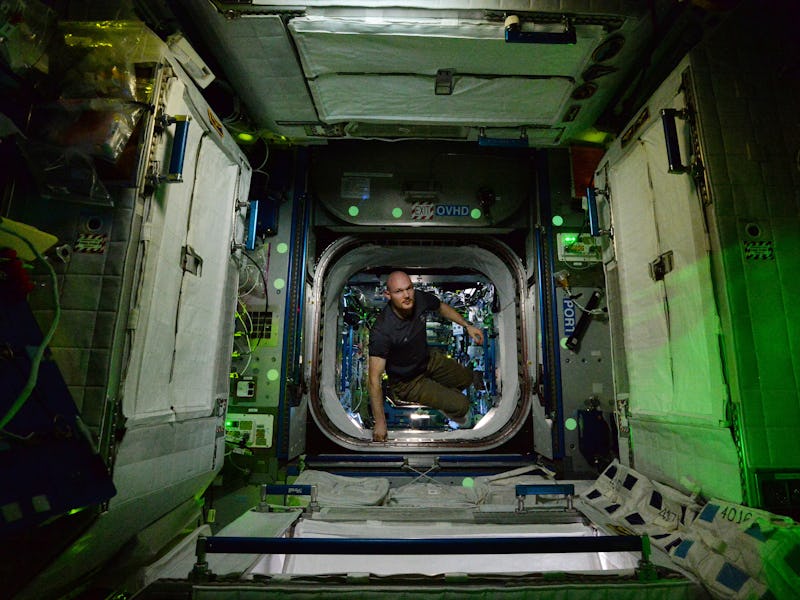The main problem with mimicking a cell on Earth is gravity. As one can imagine, creating a free-floating spherical object, especially one of microscopic size, is impossible with the constant weight of the world on top of it. But, in microgravity, like in the International Space Station, it is possible.
The ISS offers the unique ability to manipulate liquid forms unlike anywhere else, in full 3-D, which is why it has become a laboratory for cancer research. On board at this very moment is groundbreaking development of an antibody drug that may be able to attack cancer from within the body and prevent it from spreading.
The drug would be administered in the form of immunotherapy, an approach that involves injecting a foreign agent that latches onto cancer cells and signals the immune system to fight them off like an infection or virus while keeping the healthy cells in tact.
Immunotherapy is already a form of cancer treatment but it only works on a small portion of cancer patients who try it and is extremely expensive compared to radiation treatments or chemotherapy. Designing a drug that could effectively kill cancer cells would be a revolutionary and much safer way for patients to receive treatment.
The cancer cells being tested with the drug are being cultured in a six-well BioCell, created by BioServe Space Technologies. During this process, the researchers will be able to see in real time if the drug is working.
The six-welled chambers where cancer cells are undergoing observation.
“In space, you can grow larger and larger cancer tumors spherical in shape, so you have a better model of what’s happening in the human body,” says Luis Zea, research associate for Bioserve Space Technologies. “The chances of having false negatives or false positives is decreased.”
The drug being developed on the ISS is also very important to NASA as many astronauts have an increased risk of developing cancer after space travel. This is because Earth’s atmosphere cannot fully protect them from harmful radiation while in orbit.
Once the research is completed, the scientists will have a much better idea of how cancer interacts with the immune system and what the next steps should be for developing an effective treatment option.
